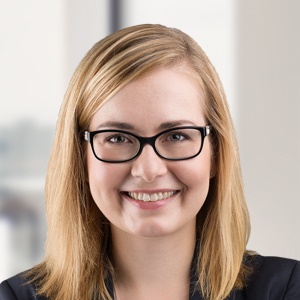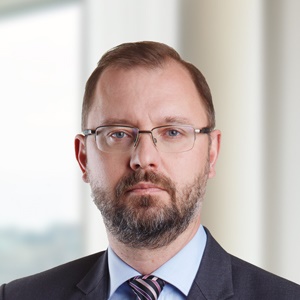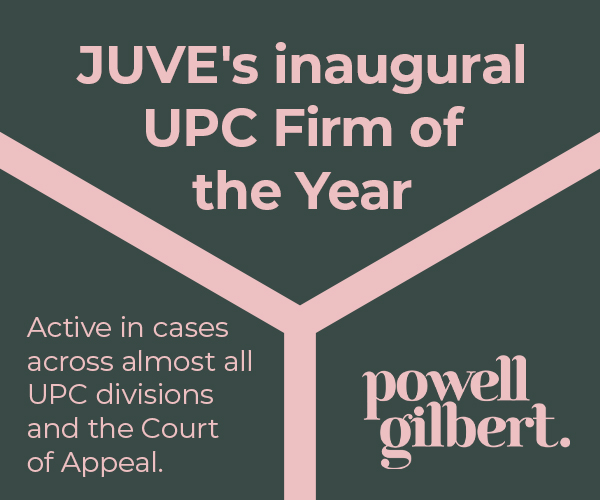Helsinki local division scrutinises UPC opt-out process in AIM Sport vs. Supponor
The UPC local division in Helsinki has rejected an injunction request by AIM Sport against Supponor. However, the judgment is attracting market attention due to its reasoning, which closely examines the UPC's process behind reversing patent opt-outs. This could impact thousands of opted-out patents and potentially put a brake on the supranational court's development.
22 September 2023 by Konstanze Richter
The UPC’s local division in Helsinki has issued its first judgment in the case between AIM Sport and Supponor, over targeted advertising technology for sports stadiums. However, the judges rejected AIM Sport Vision’s request for a preliminary injunction against its competitor, based on the patent in dispute, EP 32 95 663, initially being opted out of the UPC.
Although the patent holder withdrew the opt-out, following an argument put forward by the counsel for the defendant, the judges deemed this to contravene Article 83(4) of the Agreement on the Unified Patent Court (UPCA). This states that “an opt-out can be withdrawn anytime as long as no action has been brought before a national court in respect of the application, patent or SPC subject to the opt-out.”
AIM Sport argues timeline
With reference to the German infringement and nullity proceedings, which were decided at first instance in 2022 and are now pending on appeal, the Helsinki judges interpreted Article 83(4) to mean that AIM Sport could not have withdrawn the opt-out in the present case. Therefore, the court dismissed both the plaintiff’s application and the action on the merits (case ID: 214/2023, order no. 551054/2023 and 545571/2023).
During proceedings, AIM Sport Vision argued that the passage refers only to proceedings filed after the entry into force of the UPC. Since the German claims predate 1 June 2023, it argued that the article does not apply to the patent-in-suit. However, the judges took a different view.
According to the judges’ interpretation, opt-out withdrawals would be invalid for patents for which parties filed national lawsuits prior to the UPC. Some in the market suggest that this could undermine confidence in the new court, especially among patentees that opted out their patents. Others worry this could discourage patent holders from reversing the opt-out and entrusting their IP rights to the UPC.
Complex technology
The case began when AIM Sport Vision claimed that Supponor infringed EP 32 95 663, which covers the “digital superimposition of an image onto another image”. The technology makes it possible to place regionally-specific advertisements on LED boards. When, for example, a football match is broadcast live internationally, the broadcaster can adapt the virtual perimeter advertising to suit regional target groups. The image on the stadium board is individually modified, using digital overlays in the broadcast signal.
The US-based company applied to the Helsinki local division for a preliminary injunction against Finnish defendant, Supponor. The stakes are high; the advertising market in football alone is estimated to be worth almost €100 million.
Thus, AIM Sport Vision is asserting its property rights for UPC member countries including Germany and France. The patent holder also launched proceedings in Spain, although the country is not a UPCA signatory. Although other sports can implement the technology of both companies, both companies focus on the lucrative business of football broadcasting.
Court halts AIM winning streak
In spring 2022 in the German proceedings, the Munich Regional Court found that Supponor infringed EP 663. As such, the judges ordered Supponor to discontinue sales, pay damages, provide information and destroy the products. The defendant appealed the judgment. In August 2022, the German Federal Patent Court then fully upheld the national part of the patent. Supponor also appealed the decision in the nullity case.
In parallel UK proceedings, the UK High Court also ruled that the EP 663 was valid and infringed by Supponor. Now, it seems, the winning streak for the patent holder has been stopped in its tracks – and possibly the further development of the UPC with it.
Scrutinising the system

Henrik Lehment
The decision of the Helsinki local division affects potentially thousands of patents that were initially opted out of the system and then, with a withdrawal of the opt-out, fell back under UPC jurisdiction.
It is very likely that the case will go to appeal, not least due to the potentially major impact on the UPC’s still-developing case law. However, JUVE Patent currently has no information on this development.
Team players
For the UPC proceedings, both parties relied on pan-European teams. These involved Finnish law firms, as well as representatives from the national disputes already conducted in Germany and the UK.

Johanna Flythström
Finnish-Swedish law firm Roschier filed the suit in Helsinki on behalf of AIM Sport Vision. Partners Johanna Flythström and Mikael Segercrantz are experienced in IP litigation, with the latter regularly advising on patent infringement.
Powell Gilbert, which has already represented AIM Sport Vision in the UK proceedings, recommended the Scandinavian team. Flythström worked with the IP boutique, as well as with Noerr, which advised in the German proceedings. Max von Rospatt from Düsseldorf boutique Rospatt Osten Pross also provided support.
A new UPC instruction
Supponor relied on a Hogan Lovells team, led by Düsseldorf patent litigator Henrik Lehment, for its UPC defence. This is the first time the firm has acted for the client in a patent case. In addition to the German lawyers, representatives from Hogan Lovells’ offices in France, Italy and Spain were also active in the background. For example, they advised on issues of the respective national law.

Mikael Segercrantz
Gleiss Lutz partner Matthias Sonntag, who is representing the client in the German proceedings, assisted Lehment. Locally, a team from Finnish-Swedish full-service law firm Hannes Snellman provided further support. Panu Siitonen and Vilhelm Schröder are partners in a 25-person strong IP/IT team, which is regularly involved in patent matters.
Pan-European judges bench
Finland native Petri Rinkinen was presiding judge and handed down the verdict, together with legally qualified judges Mélanie Bessaud and Samuel Granata.
Bessaud, who is French, also serves on the French Supreme Court, where she most recently sat on the bench in the dispute between Kubota and INPI. Granata hails from Belgium, where he serves as judge at the Court of Appeal in Antwerp.
Eric Augarde assisted as technical judge. The French patent attorney, who previously worked for Brevalex – now Santarelli Group – has a background in electricity, particularly telecommunications.
For AIM Sport Vision
Roschier (Helsinki): Johanna Flythström (lead), Mikael Segercrantz (both partners); associates: Sara Väyrynen, Eero Sikow
Noerr (Munich): Ralph Nack (partner); associate: Niclas Gajeck
Rospatt Osten Pross (Düsseldorf): Max von Rospatt (partner)
Powell Gilbert (London): Ari Laakkonen, Siddharth Kusumakar (both partners); associates: Claire Robinson, Richard Fawcett, Gabriella Simon
For Supponor
Hogan Lovells (Düsseldorf): Henrik Lehment (lead, partner), Andreas Schmid (partner, patent attorney); associates: Cedric Rohr, Niels Gierse, Vanessa Zipperich, Johannes Thierfelder
Hogan Lovells (London): Katie McConnell (partner); associate: Ian Moss
Gleiss Lutz (Düsseldorf): Matthias Sonntag (partner); associate: Mischa Krumm
Hannes Snellman (Helsinki): Panu Siitonen, Vilhelm Schröder (both partners)
Unified Patent Court, Helsinki local division
Petri Rinkinen (presiding judge), Mélanie Bessaud, Samuel Granata; Eric Augarde (technical judge)

